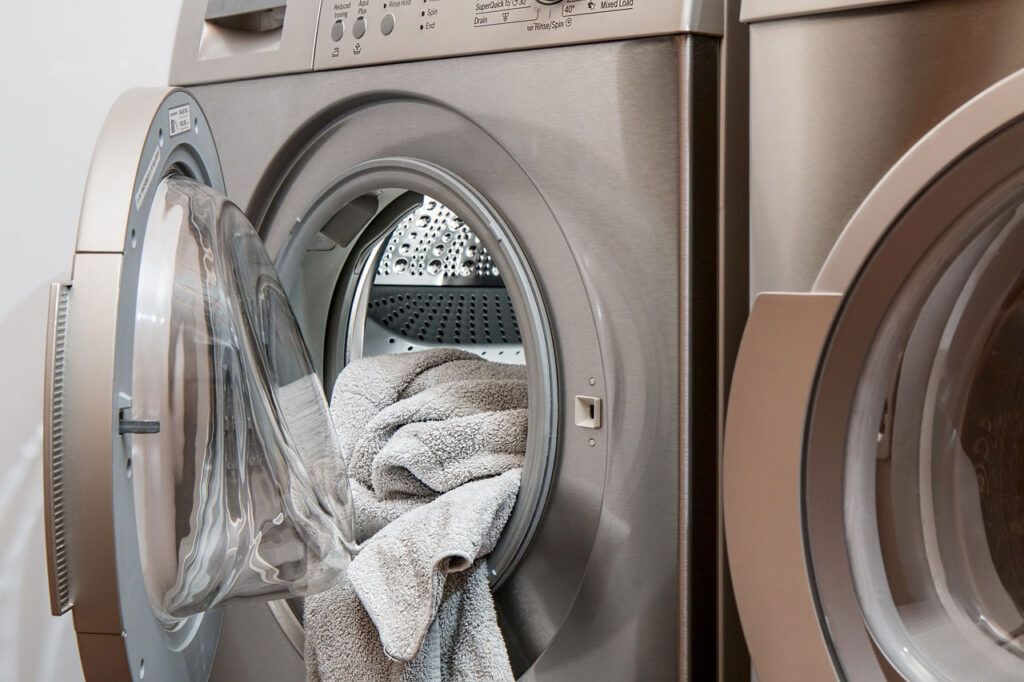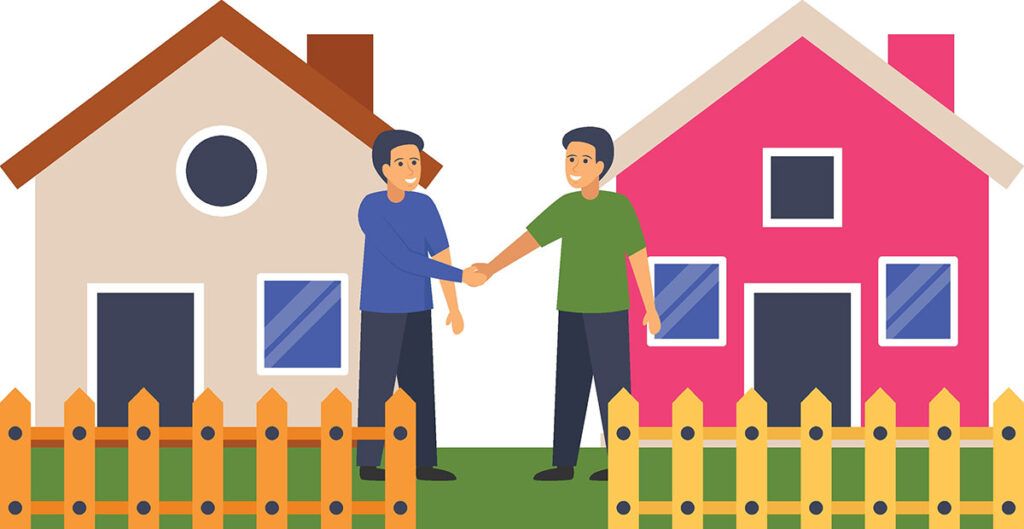How To Save Money on Your Monthly Utility Bills

The average American pays roughly $400 or more per month on utility costs, including water, sewer, electricity, and trash pickup. Add that to a rent or mortgage payment, and you could easily spend more than half of what you make solely on housing-related costs.
It’s not always possible to reduce your rent or mortgage costs, but lowering your trash, water, and energy consumption is 100% doable in most cases. Learn how to save on utility bills to help your monthly budget thrive.
How to lower your property taxes with Ownwell.
How To Save on Your Electric Bill
Across the United States, most Americans spend more than $100 per month on energy usage, whether they have an electricity bill or gas bill (or both). Residents of some states tend to pay more than others, with Alabama, Texas, Arizona, and Connecticut having among the highest averages.
However, regardless of where you live, there are ways to save energy and, therefore, lower your energy costs.
Weatherproof Your Home
Weatherproofing your home is the process of protecting it from the elements, like extreme heat or cold, to reduce how much energy is needed to heat or cool it.
Examples of weatherproofing include:
- Placing weatherstrips around doors and windows to seal air leaks
- Fixing leaky ductwork
- Keeping a fireplace sealed when not in use
- Installing storm windows and doors
- Upgrading windows
- Insulating an attic door
- Using high-quality curtains designed to repel the sun’s rays
- Adding or replacing worn-out home insulation
Some areas offer free weatherproofing services to households eligible for LIHEAP. You might also be able to request a home energy audit through your energy company, which can identify areas to improve energy efficiency, such as installing a smart thermostat or upgrading your water heater.
Reduce How Much Hot Water You Use
Your water heater is probably a part of your home you don’t think about often, but it’s one of the biggest contributors to gas and electricity costs. To start the water heating process, the water heater uses energy. As you use the hot water, your water heater needs to continue heating more water to keep it ready for use.
You can significantly save on your energy bill by reducing how often your water heater runs. Here are a few small changes you can make to save money on your electric bills:
- Turn off the faucet while lathering your hands with soap
- Turn off the water in the shower while you shampoo and condition your hair and wash your body
- Wash your clothes in cold water
- Check that your faucets aren’t leaking
- Lower your hot water heater temperature between 100-120 degrees
Buy Energy Efficient Appliances
The first energy-efficient appliances began hitting the market in the late 1970s and early 1980s, and the trend has only continued upward. Now, it’s difficult to find a refrigerator, dishwasher, oven, washer, or dryer that isn’t labeled as energy efficient.
The good news is that because they’ve become so mainstream, energy-efficient appliances are no longer much costlier than their not-as-efficient counterparts. Consider upgrading older appliances to newer models with ENERGY STAR ratings, which meet energy efficiency standards set by the U.S. Environmental Protection Agency (EPA) or the U.S. Department of Energy.
How to save more money around the house.
Invest in Solar Panels
Drive around your neighborhood, and there’s a good chance you’ll see at least a few homes with solar panels installed. About a decade ago, these energy savers weren’t as commonplace. However, more households have caught onto their potential to lower their electricity usage by making the switch.
The average solar panel installation can cost almost $20,000, but this can vary based on the size of your home and other factors. Although it’s quite an investment up front, solar panels save you money over time by drastically reducing your energy usage. If your budget allows, tapping into your home equity with a home improvement loan is an affordable way to finance the upgrade.
Pro Tip: Lower your monthly energy costs and explore the benefits of solar energy with Energy Bill Saver! Just enter your Zip code to check your eligibility for solar tax credits and bonus savings.
Get Help from Federal Programs
First and foremost, low-income households who struggle to pay their energy bill can seek help from a federal program designed to help them keep their electricity or gas accounts in good standing, especially throughout the winter, known as LIHEAP.
LIHEAP, which is short for the Low Income Home Energy Assistance Program, bases its payments on household income and pays energy companies directly on behalf of the household. For example, a household might be eligible for a $600 credit from LIHEAP. That household could have up to six months without a payment if their gas or electric bill stays around $100 per month.
Some states have their own energy bill programs, too. You can usually learn more about these through your energy company or your state social services agency.
How To Save on Your Water Bill

The next utility bill that can put a major dent in your monthly budget is the water bill. Fortunately, this bill is easier to control if you’re mindful of your water usage and can practice some smart water-conserving habits.
Upgrade to Water-Saving Appliances, Faucets, and Toilets
If you have some wiggle room in your budget now to save big on your water bill later, think about switching to water-saving components of your home, like:
- Faucets: Although water-saving faucets tend to be a little more expensive than traditional faucets, they can help you control how much water you use when you wash your hands, brush your teeth, or wash dishes. Water-saving faucets reduce water flow on their own, so you don’t have to pay as much attention to doing it yourself.
- Toilets: Water-saving toilets use less water to flush and fill the tank, so you won’t be figuratively sending your money straight down the drain. The EPA notes that these efficient toilets can save you about $140 on your water bill annually while also saving about 13,000 gallons of water.
- Appliances: Switch to washing machines and dishwashers that conserve water by reducing how much water they use per cycle, and watch your water costs dip.
- Showerheads: Similar to water-saving faucets, efficient showerheads have special mechanisms that reduce how much water flows through them, effectively making each shower cost less money.
- Timed sprinkler systems: If you use a sprinkler system to water your lawn or garden, consider putting it on a timer. Forgetting to turn off your manual system can significantly increase your water bill.
Be Mindful of How You Use Water
Lowering your water bill could be as easy as changing your water usage habits and encouraging others in your household to do the same. For example, bumping down your typical showering time from 10 minutes to 5 minutes cuts your shower water usage in half. Here are a few more ways to decrease your water usage:
- Making sure the dishwasher is full before starting a cycle rather than washing a few dishes each time
- Set the washing machine for the lowest amount of water usage appropriate for your load of clothes
- Skip the extra rinse cycle for laundry
- Water the lawn every other morning instead of every morning
- Turn off the water while lathering your hands at the sink or your hair in the shower
- Turn off the water when brushing your teeth
Collect Rainwater for Gardening
Did you know that, in many cities and towns, you can put rainwater to good use? Instead of using water from your home to water your garden or clean your car, let Mother Nature go to work for you by collecting rainwater. Special barrels are made to do the job or you can create your own using an outdoor trash can. Simply place the downspout of your gutter into the barrel to continue collecting rainwater to use around the home.
Get Help from Programs That Lower Your Bill

Similar to programs that help you pay for your electricity usage, some programs are available to reduce water bills for low-income households. First, check if the Low Income Household Water Assistance Program (LIHWAP), a program offering water bill grants to households, is available in your area. You can also check with your county’s human services agency or ask your water company if any local programs might help you.
How To Save on Trash Bills
Finally, let’s talk about the trash bill. Many areas with trash service require you to pay monthly or quarterly for garbage pickup service, usually with a set price based on a chosen package or number of cans. This bill differs from energy and water bills, which vary based on how much you use. It can be a little more challenging to cut this bill down, but as the following tips prove, it’s not impossible.
Compost To Reduce Your Output
If you use more than one garbage can, here are ways to cut back on waste. First, consider composting food scraps instead of throwing them away. If you have a trash service package based on the number of bags you typically discard in a week, composting could help you lower your output and switch to a lower-priced plan.
You can compost many food items, including fruit and vegetable scraps, egg shells, and coffee grounds, plus other household items you might usually throw away, like newspaper, garden scraps, tea bags with staples removed, and shredded cardboard. Then, use your composted material to help your garden thrive.
Share Services with a Neighbor

If you have a good relationship with your neighbors, consider joining together to share trash services. Just be sure that you have a trash service package that accommodates both your disposal needs so you don’t end up with extra charges for additional bags or bulk items.
Haul It Yourself
Tired of paying your trash bill altogether? Consider hauling it away yourself if you live close to a disposal center. Many agencies will let you drop trash off for free or at a low price. You might even ask your neighbors if you can haul their trash for them, too, when you’re heading to the center, potentially picking up some extra cash on the side.
How To Save on Utility Bills
Finding new ways to improve your home’s energy efficiency can lead to significant long-term savings. Once you determine the changes you’d like to make, like reducing air conditioning overnight or using less hot water for showers and clothes washing, communicate those changes to the people you live with and encourage them to do the same.
Don’t forget that you may have the power to negotiate contracts with your utility companies. For example, some energy companies have different energy suppliers to choose from, with some of them offering lower rates than others. Additionally, telling your trash company that you’re considering switching to another company might lead to a discount on your bill to encourage you to stay.
It’s easy to spend less money when you consider all the small changes you can make to lower the bills from your utility company. From switching to energy-efficient appliances to preventing heat loss through strategic weatherproofing, reducing your gas or electric bill is just a few steps away.